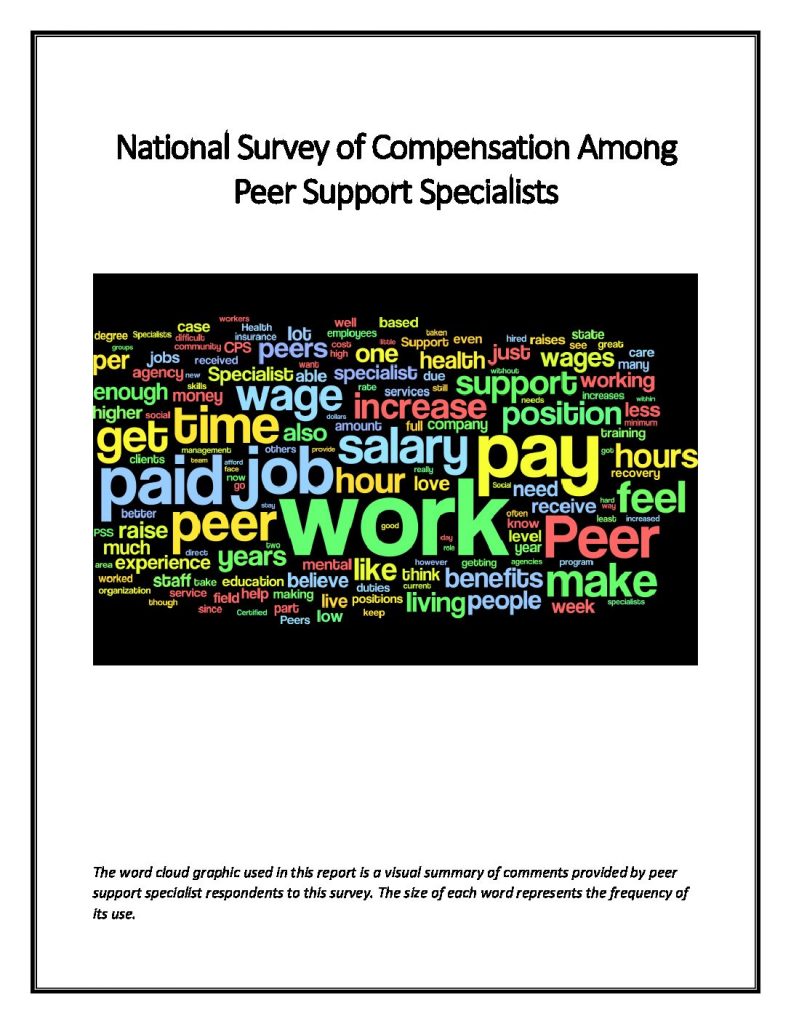The peer support specialist workforce has been growing and expanding since Medicaid established funding for these services in 2007. Absent from much of the research on the peer support specialist workforce has been a detailed national review of wages and compensation. The genesis for this study began at The College for Behavioral Health Leadership during an annual summit, with the recognition that leaders in the peer support services field did not have any reasonable benchmarks for compensation standards.
In order to address the focus of this study two surveys were constructed. One was designed for peer support specialists to report their current compensation (N = 1,608). A second survey was developed as a comparison for organizations who employ peer specialists (N = 271). Non-probability sampling methods were used and three leading consumer organizations (Depression and Bipolar Support Alliance, International Association of Peer Supporters, and New York Association of Psychiatric Rehabilitation Services) promoted and disseminate the surveys.
The findings of this study illustrate that there is diversity among the current national structure for the wages of peer specialists. This includes significant differences in average compensation rates between those who work all different hours ($15.42) and only full-time ($16.36). There are also different wage rates among the types of organizations (consumer and peer run organizations, community behavioral health organizations, health care provider organizations, inpatient psychiatric facilities, and health plan and managed care organizations) that employ this workforce. An analysis of the wages of peer specialists in the 10 US Department of Health and Human Services regions also demonstrates geographic differences in compensation rates and compares regional and national averages. Inequities in compensation rates are also noted between male and female peer specialists, with men receiving on average in excess of $2.00 more per hour than women. The implications for the findings of this study are discussed and include the need for greater attention and focus on the wages of the peer specialist workforce.


